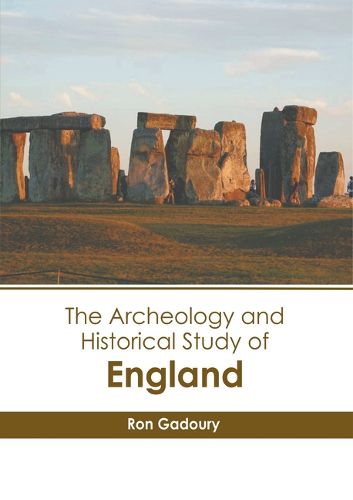Readings Newsletter
Become a Readings Member to make your shopping experience even easier.
Sign in or sign up for free!
You’re not far away from qualifying for FREE standard shipping within Australia
You’ve qualified for FREE standard shipping within Australia
The cart is loading…






Archeology and history of England reveal a rich tapestry of human activity spanning millennia. Prehistoric sites like Stonehenge and Avebury testify to early human settlement and sophisticated megalithic structures. The Roman conquest (AD 43) introduced urbanization, seen in remnants of towns like Bath and Hadrian's Wall. Post-Roman Britain saw the rise of Anglo-Saxon kingdoms, leaving behind treasures such as the Sutton Hoo ship burial. The Norman Conquest of 1066 dramatically reshaped England, with castles like the Tower of London symbolizing this shift. Medieval archeology uncovers the feudal society, with artifacts from monasteries, towns, and battlefields. The Renaissance and subsequent periods saw increased exploration, colonization, and industrialization, profoundly impacting social structures and landscapes. Archeological endeavors continue to unveil England's past, offering insights into the cultural and historical evolution of the nation. The book aims to shed light on some of the unexplored aspects of England's heritage. While understanding the long-term perspectives of the topics, the book makes an effort in highlighting their impact as a modern tool for the growth of the discipline. It will serve as a valuable source of reference for those interested in this field.
$9.00 standard shipping within Australia
FREE standard shipping within Australia for orders over $100.00
Express & International shipping calculated at checkout
Stock availability can be subject to change without notice. We recommend calling the shop or contacting our online team to check availability of low stock items. Please see our Shopping Online page for more details.
Archeology and history of England reveal a rich tapestry of human activity spanning millennia. Prehistoric sites like Stonehenge and Avebury testify to early human settlement and sophisticated megalithic structures. The Roman conquest (AD 43) introduced urbanization, seen in remnants of towns like Bath and Hadrian's Wall. Post-Roman Britain saw the rise of Anglo-Saxon kingdoms, leaving behind treasures such as the Sutton Hoo ship burial. The Norman Conquest of 1066 dramatically reshaped England, with castles like the Tower of London symbolizing this shift. Medieval archeology uncovers the feudal society, with artifacts from monasteries, towns, and battlefields. The Renaissance and subsequent periods saw increased exploration, colonization, and industrialization, profoundly impacting social structures and landscapes. Archeological endeavors continue to unveil England's past, offering insights into the cultural and historical evolution of the nation. The book aims to shed light on some of the unexplored aspects of England's heritage. While understanding the long-term perspectives of the topics, the book makes an effort in highlighting their impact as a modern tool for the growth of the discipline. It will serve as a valuable source of reference for those interested in this field.